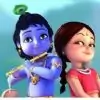ALChougule
Posted online: Friday , March 14, 2008 at 1143 hrs
Before the onset of daily soaps in mid-2000, general entertainment channels were a vibrant home to a variety of stories sourced from varied thinking brains where the director was the man in command. Not only producers and directors had considerable freedom to choose their stories and suitable actors to portray key characters but the director also enjoyed creative freedom to tell the story in his distinctive style. But the flood of dailies changed ground reality. Today not only all creative decisions are taken by channels but the director also has lost his commanding position. In fact, today's directors are said to be mere technicians who execute channels' orders and can the scenes as desired by the latter.
"In the current scenario the director has no respect," says Arun Frank who has directed more than 3000 episodes of shows like Andaaz, Amar Prem, Aashiqui, Jaan, Aangan and Zindagi Teri Meri Kahani. His last show was Zindagi Teri Meri Kahani four years ago and since then Arun has been on a forced sabbatical from serials despite several lucrative offers. "I just can't work in the present scenario. Channels don't need a thinking director but only a technician who will follow their orders," he regrets. It's not that channels did not have any say in the creative aspects earlier. "There used to be interaction between channel and producer/director and scripts were approved by their programming teams. But there wasn't much interference. Today either you submits to their orders or don't work," he adds. Arun prefers to make serials for DD where he enjoys complete freedom.
Well-known director Siddhartha Sengupta also maintains that all creative calls are taken by channels. That's precisely the reason why many directors who made good weeklies in the '90s have taken a backseat. But Siddhartha, who made shows like 9 Malabar Hill and Mrityudand, is still working and is one of the most preferred directors to set up new shows. "I am approached by channels to start shows but once the show gets settled I prefer to quit because it becomes an assembly line production," he reveals. However, Siddhartha has hung on to Ek Chabi Hai Pados Mein because it is a weekly and he has all the creative freedom. "I am doing Radha Ki Betiyaan for the same reason," he adds.
But not everyone is as lucky as Siddhartha or Anil V Kumar. Anil has been one of the most successful directors in Balaji who graduated from an assistant to a full-fledged director with Kahanii Ghar Ghar Kii. In fact, he was Ekta's most preferred director for starting new shows, be it Kkusum, Kaahin To Hoga, Karam Apna Apna and Kayamath before he quit Balaji recently. "In terms of production values, look and locations dailies are almost on par with weeklies but what is really lacking is good stories and characters simply because there is no enough time to write and develop good characters. Since it is mostly a rehash job, third and fourth assistants are asked to direct serials as they only have to follow the channels' instructions," he says. In fact, according to Anil, no scene or dialogue can be changed without a channel's consent.
As a result content is a major casualty. Stories and characters are sourced from old Hindi films because director Ajai Sinha of Hasratein and Astitva fame says nobody has good stories. "What I did in Hasratein ten years ago is being done in most family dramas on a daily basis. Astitva didn't get good TRPs but it was a highly-rated show and I could make it only because the channel supported me completely. Today everything has to be within mainstream parameters," says Ajai who is currently making Ghar Ek Sapna for Sahara. "I am still working because the channel has given me enough creative space. But unfortunately it's not the case with many others."
It is indeed not the case with many. But channels maintain that all creative decisions are taken mutually by channel and producer/director. "Channels have a vision and they know the demographics and target audience. When a show is conceptualised a lot of things are kept in mind like the age group, market and sensibilities of viewers it is addressing. A lot of debate and discussion take place and every aspect is looked into before the show goes to the screenplay stage. The director comes into picture for execution though he is also part of the entire creative process. But by no means he is less important," says SaharaOne's creative head Kalyan Sundaram. He further says that channels are in a better position to a take call on certain things keeping the business aspect in mind because they have all the available date on consumer behaviour.
Zee's business head Tarun Mehra is also of the view that director is not secondary but an important part of the creative and execution process. "But these days creative decisions have to be taken very fast vis--vis the feedback, ratings and trends. After all, at the end of the day it is business and all decisions, creative and otherwise, have to be taken in the interest of the show and channel," feels Mehra. Speaking in general, Sony's creative head Sanjay Upadhyay, a television director in his own right who has been on a long break from direction after dailies took over prime time television, says that by and large the director's position has been undermined for reasons known to everybody. "But we at Sony believe in handing over the creative aspect to the production house once the show is set. After that all the rights and wrongs that happen to a show are the producer's responsibility," adds Sanjay.
In the good old days weeklies had 4 episodes in a month whereas dailies today have 16. Since the quantum of work has increased four times, Siddhartha says that no director has the energy to work with full creative control over a show. "It is difficult to work on the script and characters when in a month you are supposed to shoot 16 episodes," he informs. As a result producers appoint a creative head for each show. His job is to interact with channel's programming and marketing teams on all creative aspects and the director is left alone to take care of shooting. "It sounds absurd but there is no alternative and the system is working," chuckles Siddhartha.
Source: https://www.screenindia.com/news/Losing-grip/283091/
























